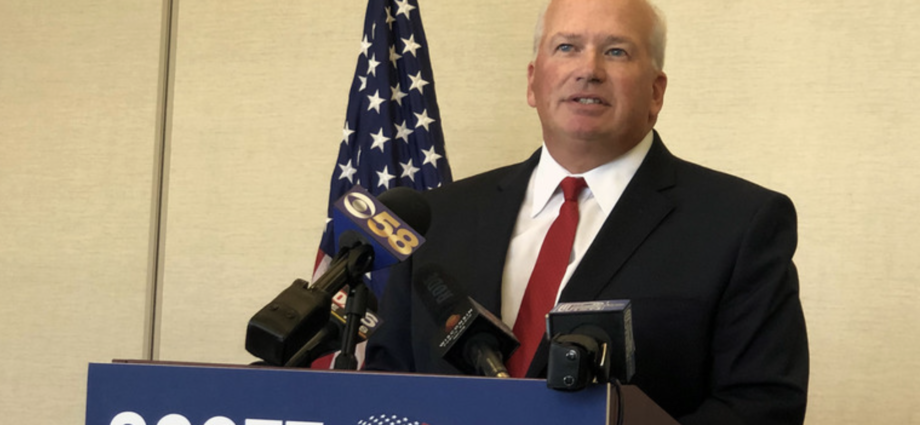“Keeping Violent Offenders Off Our Streets Act” Targets Bail Funds Supported by V.P. Harris
For all of the rhetoric we've heard about ending cash bail, there are two significant flaws in our national system that have escaped the attention of most policymakers. First, incomplete criminal history information has allowed for the release of a dangerous defendants pending trial -- sometimes with fatal consequences. Second, charitable bail funds have not been subject to regulation.
H.R.8930, “Keeping Violent Offenders Off Our Streets Act,” introduced in September by Wisconsin U.S. Rep. Scott Fitzgerald (R-Juneau) aims to address and solve these problems. While the debate over bail and reform rages on, lawmakers are urged to learn more and support this legislation which will make communities safer across America.
On Thanksgiving Day 2017, Dabrett Black fatally shot Texas Trooper Damon Allen, who was sitting in his patrol car shortly after pulling over Black for speeding . At the time, Black was out on bail on a relatively low $15,500 bond issued by Smith County Judge Mitch Shamburger for ramming another law enforcement officer's vehicle earlier that year.
Black had two prior convictions for assaulting police officers from 2015, a fact that Shamburger admitted to being unaware of when he set the bond. Moreover, while he was in jail pending Trooper Allen’s murder, Black's bond was raised to $400,000 by a judge grand jury following his indictment on charges stemming from his ramming incident.
There is no other way to put it: a dangerous three-time assaulter of law enforcement officers was released because of gaps in his criminal history information and this resulted in the murder of Trooper Allen.
The first component of H.R.8930 would closely resemble aspects of Texas' Damon Allen Act, which finally passed last year. It would prohibit defendants from being released on a $0 bail, but more important, require that across the United States judges be given a complete criminal history profile of defendants prior to bail being set.
The second part of H.R.8930 would require states to regulate charitable bail funds. Such funds have hauled-in an estimated $100 million nationwide. However, they are largely unregulated and are not transparent in terms of reporting on the individuals they bail out.
While it would be logical to assume that the organizations behind charitable bail funds have basic procedures in place to ensure that the individuals they bail out don't commit more crimes and harm their communities after they are released, this turns out not to be the case. In fact, many do not practice any due diligence whatsoever.
Greg Lewin, Executive Director of the Minneapolis Freedom Fund, conceded that he typically never checks the charges or anything else about the people he pays to release. He often picks random file numbers and then posts the bails. He said this is due to the ultimate fact that bail funds stand for a simple proposition—“f- the courts” and “f- the jails.”
Lewin acknowledged that a good fundraising message was offered when then-vice presidential candidate Kamala Harris solicited for donations to bail out peaceful protestors who turned out in force following the murder of George Floyd by a Minneapolis police officer. But in practice his organization directly helped a mere twelve such protestors. Instead, the money that has been raised is being used to bail out violent and repeat offenders. According to Lewin, they are spending as much as $10,000 per day to help these defendants.
There is a better way. Indiana, New York and Texas have passed legislation to rein in the abuses of charitable bail funds, requiring they be licensed, while limiting the cases for which bonds may be posted. H.R.8930 would also add charitable bail funds to what is defined as insurance in the Federal Comprehensive Crime Control Act. Basic requirements, mandated on the entire insurance business, including private bail agents, would be imposed on charitable bail funds under this legislation.
While H.R.8930 won’t solve the current crisis with rampant crime, it is a singularly important component in bringing greater accountability to the system of pretrial release in our country. Implementing logical solutions to these growing challenges should be the first order of business in a new wave of efforts to make the necessary repairs to our criminal justice system.



Facebook Comments